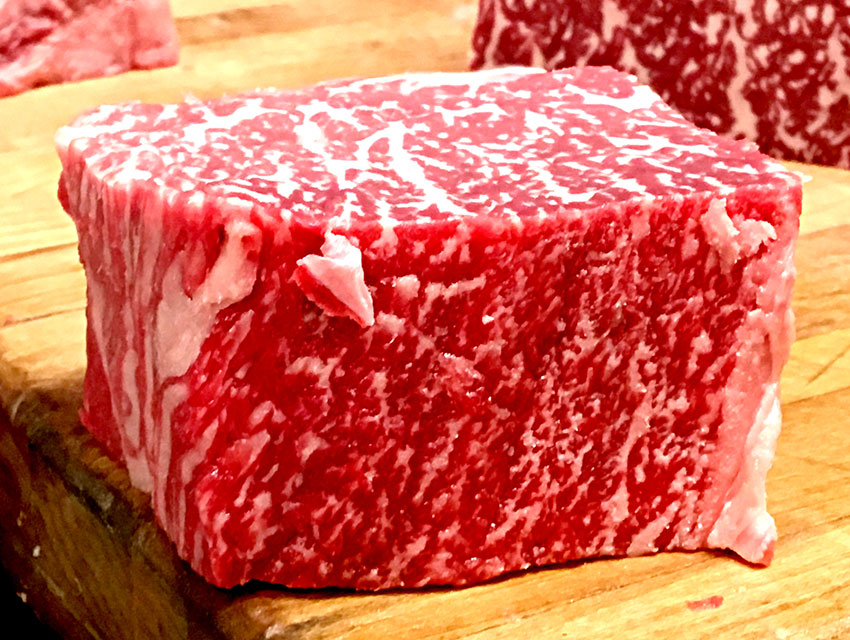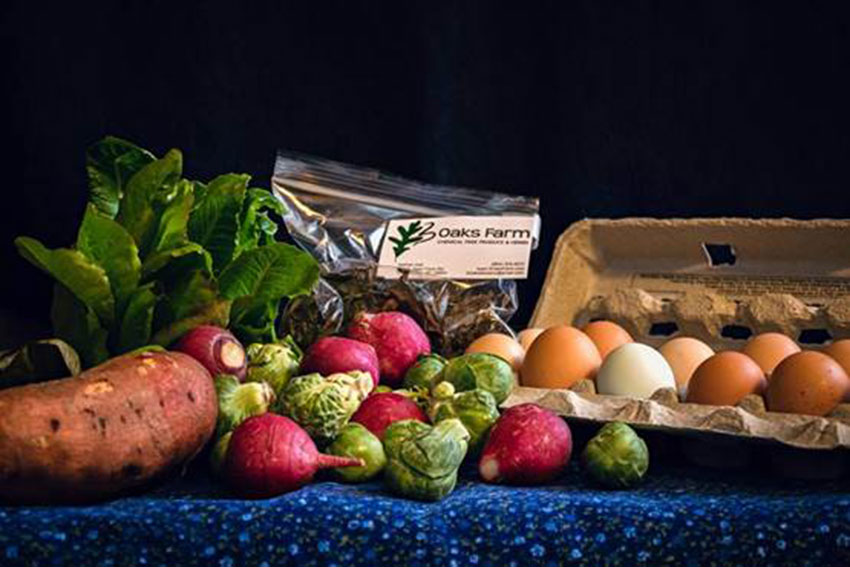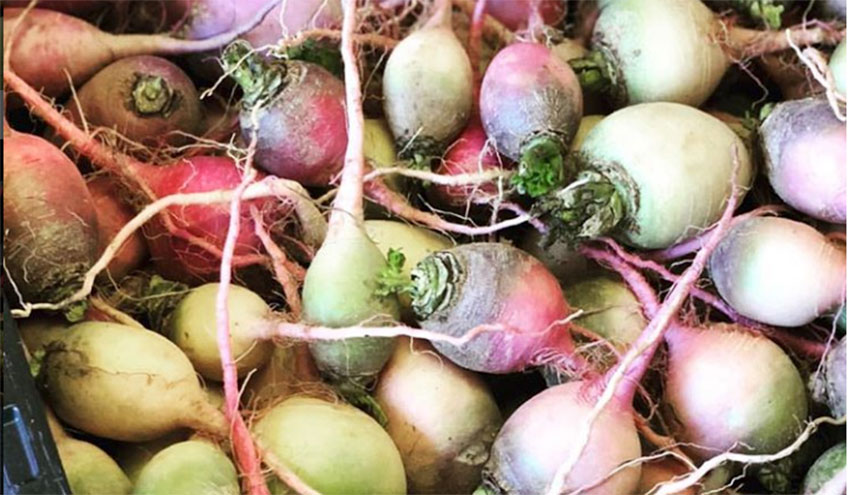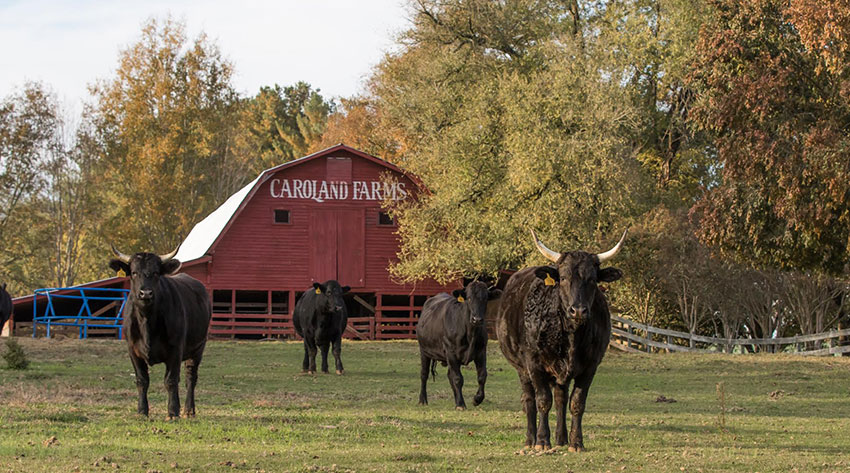We're hiring: Land Stewardship Specialist
This full-time position plays an integral role in our Stewardship and Land Management team by conducting annual monitoring visits to properties protected by conservation easements, interfacing with landowners, compiling reports, and more.
Local Farms, Local Food: Part 1
April 16th, 2018
By Guest Contributors
Upstate Forever's work preserving farmland helps prevent urban sprawl, boosts community health, and contributes to a thriving regional food community.
For our Spring Issue of the Upstate Advocate, we reached out to local farmers, restaurateurs, retailers, and other stakeholders asking them what a thriving local food scene means to them.
Here, in the words of some of the people who know best, are a few reasons why Upstate Forever is working so hard to protect our region's vanishing farmlands. Part 1 of this blog series features thoughts from Bioway Farms, Caroland Farms, Clemson Area Food Exchange.
Bioway Farm
What is your organization, and how do you see your role in the Upstate's local food community?
My farm, Bio-Way Farm, is a diversified market farm growing Certified Organic produce and marketing through a CSA, the TD Saturday market and the Slow Food Earth Market as well as to farm to table restaurants. My role is to teach and provide opportunities for others to see how important robust local food systems are to our quality of life
Why does having a thriving local food/farm scene matter to the Upstate? Why does it matter to you personally?
Local food matters because it encompasses so much of our daily lives. Local food is usually tastier and healthier than food from far away. It also thwarts sprawl because if landowners are making money from their farming than they're less likely to sell out to developers. "Eat your viewshed" A thriving local food scene also creates opportunities for entrepreneurs to start value added businesses around local products.
I was born and raised in the Upstate so these issues are very personal to me. I've seen lots of negative consequences to sprawl type growth. One way to reduce the development pressure is to have successful farms. Small scale organic farms are the epitome of true sustainability.
In your opinion, what is the biggest benefit to buying/consuming local food?
There are many benefits but I believe reducing the carbon footprint associated with food production is number one.
What is your vision for the future of local food/farms in the Upstate?
One in which everyone has access to local food and appreciates it's many social, environmental and economic benefits. One in which all kinds of foodstuffs including fruits and grains are grown and subsequently made into value added local products. This is the economic magnifying effect that supporting local businesses stimulates. I also hope that farms help citizens attain a land ethic by knowing where your food comes from and how everything is interconnected.
— Chris Sermons | Bio-Way Farm, Ware Shoals | biowayfarm.com
Caroland Farms
What is your organization, and how do you see your role in the Upstate's local food community?
I, along with my business partner Bob Jordan of Greenville, own Caroland Farms in Landrum. We are focused on building a herd of Wagyu cattle with top genetics for delivering the highest quality beef in the Southeast - for the Farm to Table restaurant market. We raise full blood Japanese Wagyu and the availability of that product is very limited in the US and even more so in our area. There are some “percentage” wagyu products in limited supply within the region but even these cross bred cows are limited and the quality is not very consistent and usually significantly less than a full blood with the right genetics. So we will be limited in our supply and intend to work directly with a few regional restaurants interested in very high quality beef that is pasture raised and free of hormones and antibiotics. We have a herd of 300 cows currently and have plans to eventually produce 150 cows per year for the beef to the local market.
Why does having a thriving local food/farm scene matter to you?
The reason I started with Wagyu beef and raising my own was to personally have access to the best beef in the world and to know that it is raised in a healthy fashion for the cow and eventually for the consumer.
What is your vision for the future of local food/farms in the Upstate?
I would hope there would eventually be a better conduit and means of connecting chefs and interested consumers directly to the local farmers and ranchers to distribute the product in a more efficient way………….so that we can all eat more locally and have better access to foods produced in a healthy way. That mechanism doesn’t exist today.
— Jay Alexander | Caroland Farms, Landrum | carolandfarms.com


Clemson Area Food Exchange
Spread of one customer’s CAFÉ order in February 2018 Photo: Jared Black
What is your organization, and how do you see your role in the Upstate's local food community?
Our online farmers market, Clemson Area Food Exchange (CAFÉ), began in March 2011 as a partial solution to what my co-manager Elian Evans, a group of about seven farmers in Pickens, Oconee and Anderson counties, a handful of customers from the newly started Clemson Farmers Market, and I saw as a need for better access to off-season local produce in our community. We have become an important sales outlet for about 30 farms in our 50 mile radius, an essential source of fresh, local food for hundreds of households in our tri-county area, and an important incubator for start-up farms and food preparers in the Upstate. We have also been able to help small retailers like Farmacy in Easley gain access to produce from more different local farms. We chose the acronym, CAFÉ, to suggest that we might form the basis of a renewal of community based around food. We have achieved some of this, but there is much more to be done.
Why does having a thriving local food/farm scene matter to the Upstate?
A thriving local food system is necessary for food sovereignty, the self confidence that we are able to feed ourselves. We are far from achieving this, but I believe it is possible and desireable. Just as a region takes pride in its ability to provide worthwhile employment for its population it should be able to ensure they are well fed. It also adds to the individuality of the region because the food is grown here in our own soil and indigenous biota. We have many endemic heirloom varieties, so it provides a way of cultivating if not preserving our agricultural heritage.
Why does it matter to you personally?
I am a Type 1 insulin-dependent diabetic who has spent years exploring food choices to minimize insulin dependence. I have found the friendliest food for me are raw vegetables. If you eat food raw you become very discerning of quality and freshness. I have not been able to grow all my own food, so CAFÉ is instrumental to my own personal diet.
In your opinion, what is the biggest benefit to buying/consuming local food?
By purchasing locally grown food you are voting with your dollar, not only to keep our money in the community, but to keep the land growing food. As Wendell Berry has so eloquently elaborated, industrial scale farming has never healthy for our bodies or rural communities. By committing to local agriculture we keep more sovereignty over our landscapes, economies, and personal health.
What is your vision for the future of local food/farms in the Upstate?
More production! There is much more demand than the present farm production can meet. At CAFÉ we are hoping to begin facilitating the development of community gardens and backyard gardens and providing them with an instant market. We are also working on making this food available to all, not just those with Whole Foods capable incomes. We are investigating credit exchange systems that can allow people to gain access to food without using currency. Our vision is a colorful vibrant crazy mosaic of different sized patches of delicious, nutritious food that is exchanged in multiple venues. Supermarkets may still coexist. Exotic foods are fun and add an important element to life, but they should shrink to the sidelines. Supermarkets will begin to invite the local farmers inside and offer them badly needed cold storage facilities.
— Lance Howard | Clemson Area Food Exchange, Central | clemsonareafoodexchange.com
If you didn’t get a chance to respond, and would like to, please contact sboman@upstateforever.org. Participants’ views do not necessarily reflect the views of Upstate Forever.



